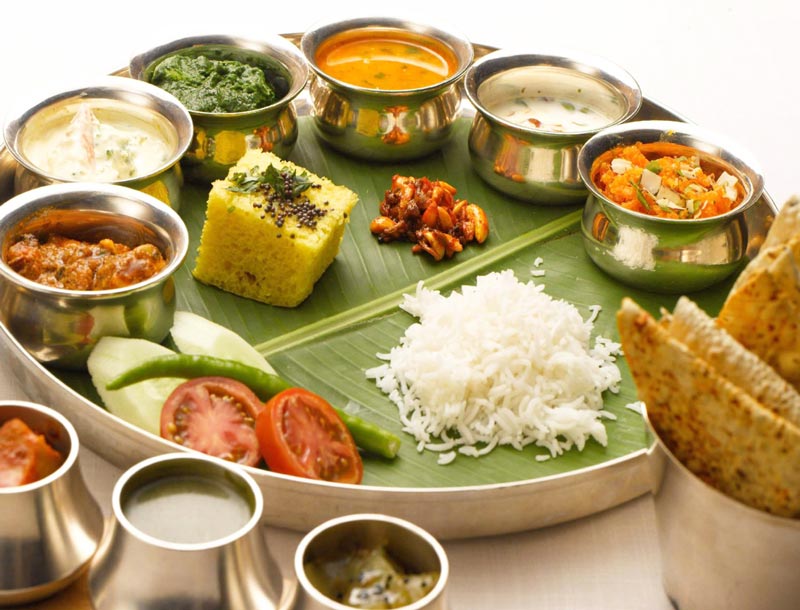There is a multitude of reasons the mystical South Asian country India, is famous. The rich cultural heritage, the superfluity of colors, the glorious hospitality and not to forget, the culinary extravagance are the key aspects that make India widely popular, the world over. While India’s gastronomical secrets may have reached even minuscule parts around the globe, one can’t ignore the fact that when it comes to food safety standards, India still has a long way to go. According to Food Sentry, a global food source monitoring organization, India tops the list of food violators in the world, followed by China. For a country that comprises of almost 18% of the world’s population, this data is indeed quite alarming and requires strict precautionary and corrective measures at the earliest. Here are five facts about the hidden toxins in an Indian diet:

Noxious Breakfast Necessities – What does your typical breakfast comprise of? A glass of milk, a slice of bread and maybe an egg? What if you learnt that none of these foods you consume on a daily basis are, indeed, fit for consumption? Shocking, isn’t it? Research suggests that 5-7% of eggs are contaminated and can put you at the risk of salmonella poisoning, a condition that can result in nausea, vomiting, cramping, diarrhea, headaches, fever, bloody stools and even pregnancy complications. This is mainly a result of the inhumane treatment and living conditions of hens. You may think that the bread you purchase from the bakery next door is fresh, however, it could contain contaminants like potassium bromate, a chemical added to increase the elasticity of bread. Potassium bromate has carcinogenic effects, and many countries have banned it for the same reason. Even the milk you drink every day may contain hazardous chemicals like gentamicin, boric acid and formalin that can all have a highly disastrous effect on your health.
Unwholesome Meal Essentials – Rice is one of the key staple foods in almost every Indian household. Numerous reports and studies suggesting the high amounts of arsenic content in rice found in many Indian states are making the rounds. High levels of arsenic can reportedly give rise to serious health concerns like DNA damage, melanosis, keratosis, skin cancer, etc. As per 2013 news reports, rice imported from India and China had dangerously high levels of lead in them. The excess oil and salt content in pickles, another popular accompaniment to Indian meals, aren’t the only reasons to worry about. Packaged pickles also contain the preservative, Sodium Nitrate/Sodium Nitrite (E 250) that can lead to the formation of nitrosamines in the body, compounds that can cause cancer.
Adulterated Beverages – Tea/Chai is by far the most commonly consumed beverage in India and turns out that there’s some adulteration even in that. Research suggests that packaged teas contain contaminants like old tea leaves, sand, sawdust, coal tar and iron fillings and can lead to liver, lung and skin disorders. A study conducted by Bhabha Atomic Research Centre (BARC) found many carcinogenic compounds like bromates in bottled drinking water samples in Mumbai. Packaged juices and drinks also contain a host of artificial color additives that can increase your susceptibility to cancer.
Contaminated Fruits And Vegetables – Don’t get tempted the next time you see big, bright and juicy looking apples arranged neatly on the supermarket shelves – to make them look inviting, they may have chemicals injected into them. Chemicals like copper sulfate are used to color fruits and vegetables artificially, and they can lead to nausea and tissue, liver, and kidneys damage. Its excessive intake can even lead to shock and death. Oxytocin, a prescription drug is also injected in fruits like melons and papayas to make them grow big in size. Their excessive intake can have highly damaging results on your health by contributing to memory loss, nervous breakdown and heart disorders.
Toxic Packaged Foods – Dr. Suneeta Chandorkar, Assistant Professor, Department of Food and Nutrition, Faculty of Family and Community Services, MS University, Vadodara, in an India Today article stated that many Indian packed food brands mislabel their products to make them seem healthy. The tests, however, report contrary results. Though Maggi may have emerged victorious after having defied the claims that it contains high quantities of lead, one still can’t help but worry about the safety of consuming packaged foods. MSG, a common preservative and flavor enhancing ingredient in many packaged foods can lead to a flurry of health problems like migraines, palpitations, increased heart rate, nausea, chest pain and even liver damage. Artificial coloring used in sauces, cereals, candies, etc. can trigger a hoard of health troubles ranging from ADHD, nausea, high blood pressure, tumors, to cancer.
Above mentioned are just some of the many glaring reasons for you to increase your awareness and keenness about your food selections. Read the food labels, keep yourself informed about the latest food security news, ask questions, speak to people and watch out for any unfortunate cases of people falling sick having eaten at restaurants around you. Stay mindful, stay healthy!
About Author Aradhana
Aradhana is a writer from India. She covers topics concerning parenting, child nutrition, wellness, health and lifestyle. She has more than 150+ publications from reputable sites like Huffington Post, Natural news, Elephant Journal, Lifehacker and MomJunction.com to her credit. Aradhana writes to inspire and motivate people to adopt healthy habits and live a stress-free lifestyle.